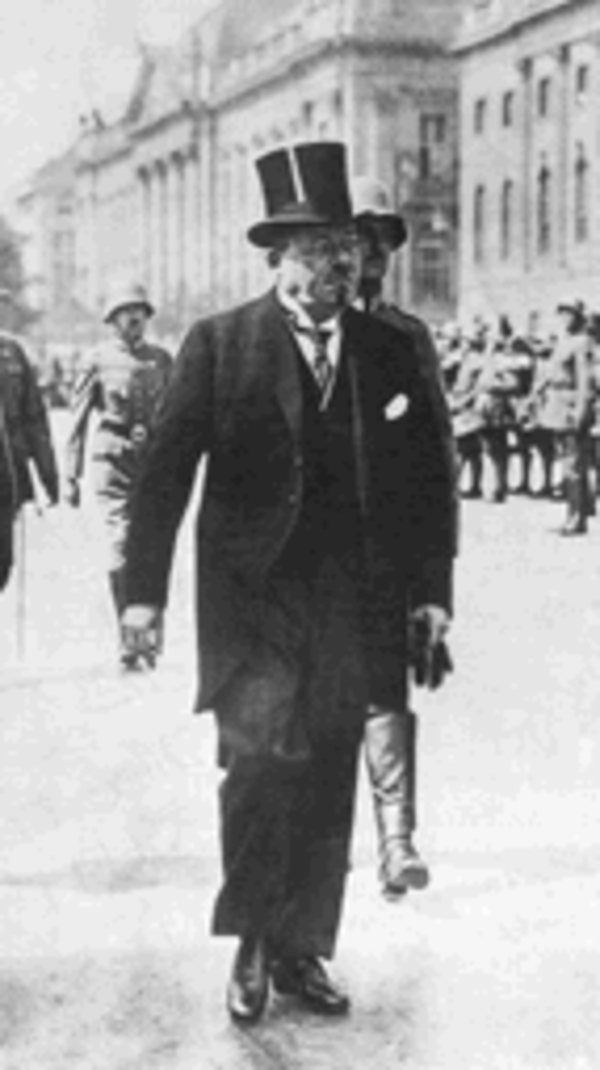Friedrich Ebert
Friedrich Ebert was Weimar Germany’s first president and an instrumental force in the introduction of Weimar’s constitution, which played an important role in the downfall of the Weimar Republic.
Born in February 1871, Ebert worked as a saddler before becoming a journalist and getting involved in trade unionism. It wasn’t long before he chose to move into politics and he became a member of the Social Democratic Party (SDP). After becoming the party’s secretary general in 1905 he was elected to the Reichstag in 1912 and became the leader of the SDP in 1913.

Ebert was one of many to support Germany’s involvement in World War One and, as the war drew to a close, he was invited to be part of a coalition government which was led by Prince Max von Baden. However, his support of the war resulted in a split in the SDP, prompting the creation of two smaller parties: The Communist Party of Germany and the Independent Social Democratic Party. However, both of these groups were anti-war.
Despite this, Ebert had such a strong political reputation that he was asked by Max von Baden to take control of the government in November 1918 and he immediately allied with the military and Freikorps. This action was an attempt to overturn the Spartacist movement in the so-called German Revolution, and led to Ebert becoming associated with the brutality of the groups.
In spite of his brutality, the fear of succumbing to the communist revolution that had taken over Russia was so great that most people turned a blind eye to his actions. He is also thought to have been so aggressive in his stance due to initially losing credibility then he moved from Berlin to the safer city of Weimer as the revolution spread.
In January 1918, elections were held and Ebert’s coalition received support from 85 per cent of the county. Just one month later he was elected as president of the Weimar Republic, which was a position he held until he died in 1925. His time in office wasn’t easy, particularly as he had to deal with the humiliation felt by many Germans following their loss in the war, particularly after the Treaty of Versailles came into force. The country’s economic situation and the invasion of the Ruhr also provided a great deal of stress to the brutal politician.
From 1920, Ebert lost public support (thought to have been a result of the singing of the Versailles Treaty). He died at just 54, with many believing a high court judgement that he had committed high treason was a serious contributing factor to his early demise.
MLA Citation/Reference
"Friedrich Ebert". HistoryLearning.com. 2024. Web.
